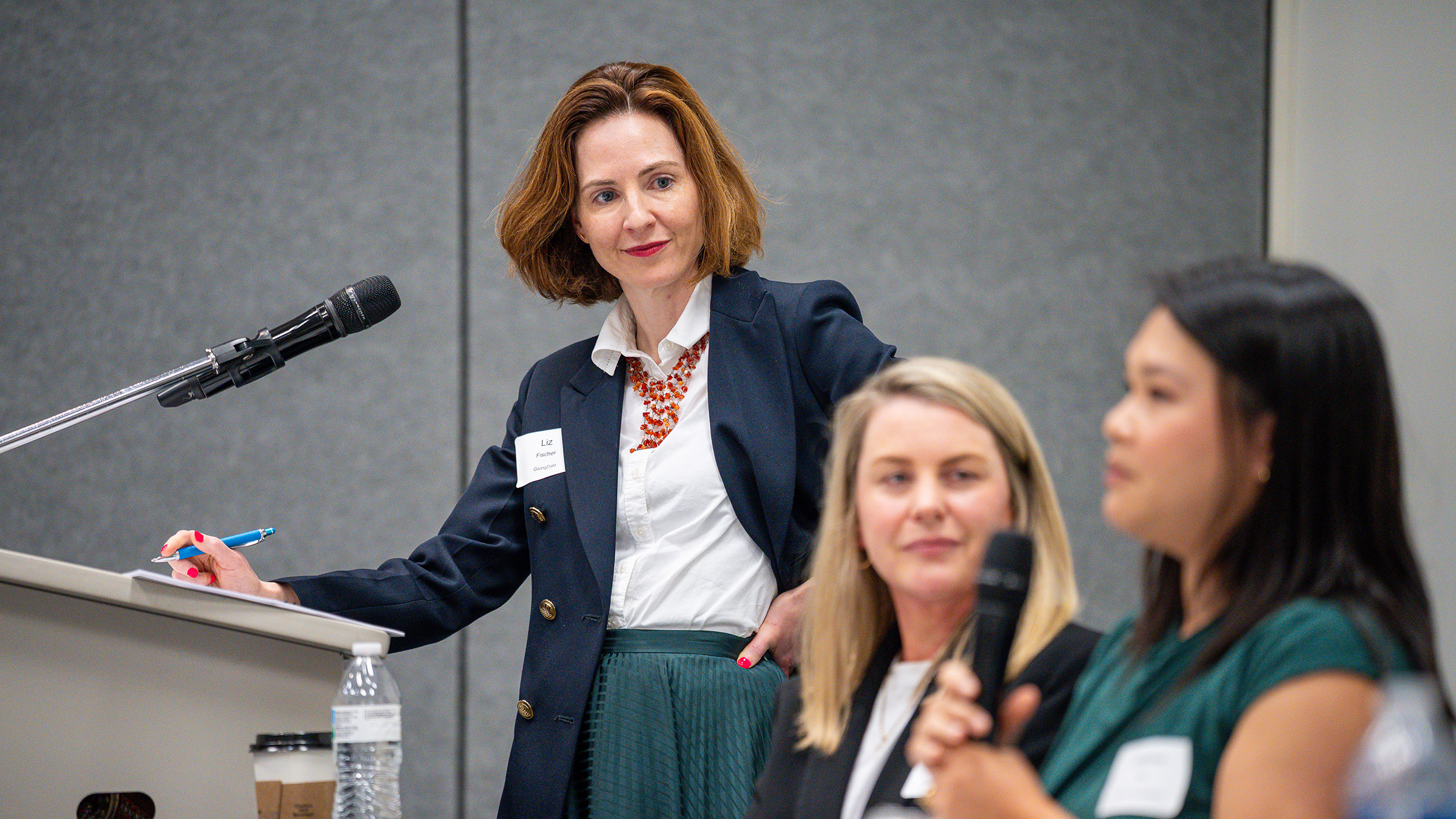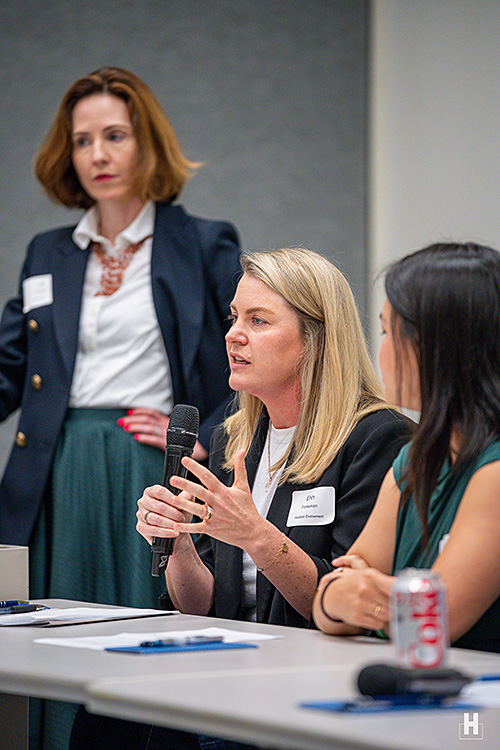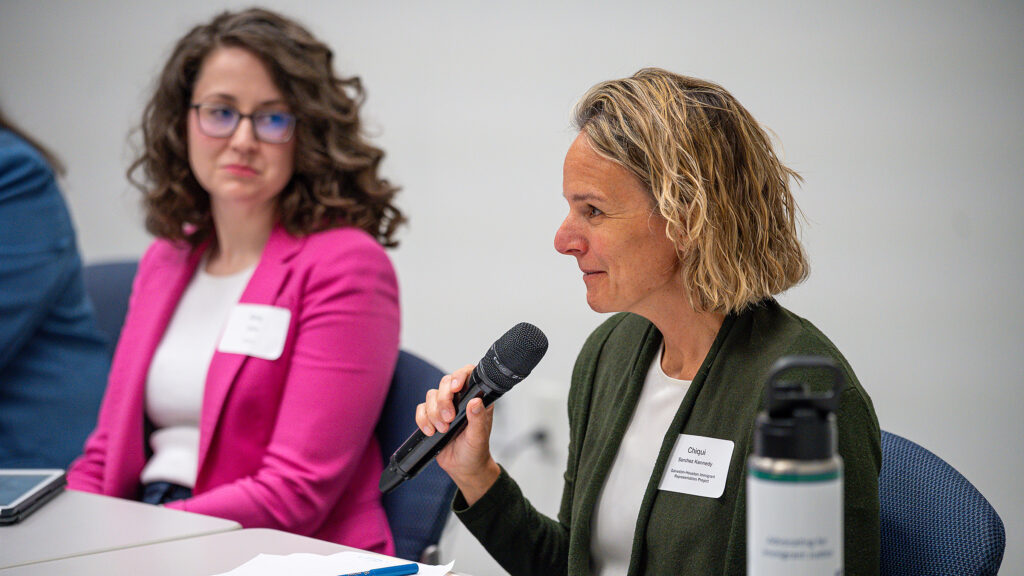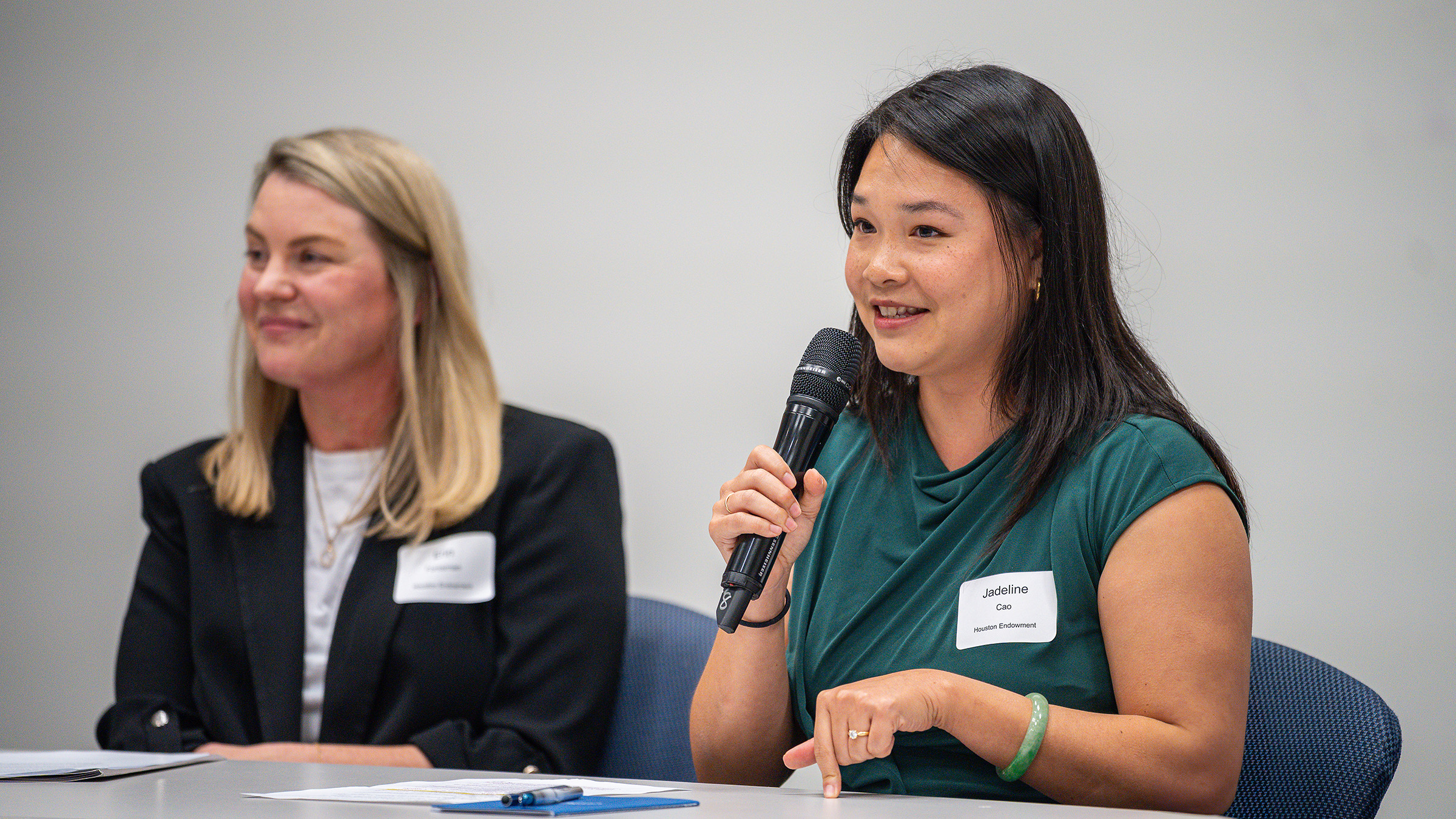There’s no one-size-fits all approach, but it starts with listening to grantee partners, say funders and nonprofits at a panel conversation hosted by Houston Endowment and GivingData

In a moment defined by shifting policy landscapes and urgent community needs, funders have an opportunity to embrace trust-based philanthropy by providing more flexible, low-barrier grants that strengthen their nonprofit partners—and there’s no one-size-fits-all approach to getting there—said nonprofit leaders and funders at a panel conversation Wednesday co-hosted by Houston Endowment and GivingData at United Way of Greater Houston.
The panel discussion, “Meeting the Moment: A Model for Flexible, Collaborative Grantmaking,” was moderated by Liz Fischer, CEO of GivingData, which provides grants management support to foundations. “Nonprofits know what they need to succeed and are looking for more flexible solutions and partnerships from grantmakers in order to not only work toward their missions, but also operate their organizations,” said Fischer.
From theory to practice

The conversation explored what it takes to move trust-based philanthropy from theory to practice. It starts with building relationships and listening to grantee partners, said Erin Forssman, Houston Endowment’s Director of Grants Management.
“Our mission is to make sure that the people of Houston thrive, that the quality of life can be improved, and without these grantee partners, that cannot happen…grantee partners are why we exist,” she said. “We wanted to make sure that we were able to be a great partner in return.”
Through multiple touchpoints with grantees—including frequent check-ins and a survey administered by the Center for Effective Philanthropy—Houston Endowment learned grantee partners needed support beyond traditional programmatic grants, especially investments in their organizational capacity and opportunities to learn from one another, Forssman said.
“We really value the opportunity to listen and learn from our grantees as much as possible. That’s easy to say, but for us, this was a moment where we said, ‘We know listening is important, and we need to make sure that we’re not only listening, but we’re turning that into action.’ ”
Houston Endowment’s Collaboration Fund was born out of this simple yet powerful idea: listen, then act. What followed was a highly collaborative internal process to design a pilot program rooted in Houston Endowment’s values. The premise: offer monetary support, trust organizations to use it wisely, and reduce the burden of applying. Sixty-five grantee partners each received $75,000 in flexible support. Awarded in late 2024, the funds could be used in one of three broad areas: investing in people, investing in work environments, and accessing technical expertise. The application and reporting process were intentionally minimal.
“We don’t need receipts, we don’t need any of the details. Just tell us what you think you’re going to use this for and why,” said Forssman.
Grantee experience
For grantee partners like the Galveston-Houston Immigrant Representation Project (GHIRP) and Houston chamber orchestra ROCO, the impact of this trust-based approach was immediate and meaningful.

Panelist Elizabeth “Chiqui” Sanchez Kennedy, Executive Director of GHIRP, said the flexibility came at a critical time. “This gave us an opportunity to upgrade and prioritize systems that were definitely needed.” That included reliable internet, a staff retreat, and professional development opportunities—investments that “impact not only our organization’s functioning, but also really promote staff retention.”
Panelist Amy Gibbs, Managing Director of ROCO, said her team used the funds to procure donor prospecting software, cover membership dues for professional organizations and conferences, and bring in a coach to support a new community engagement initiative. “Things like [this] would have been the first thing for us to either delay renewal or not renew at all,” she said. “But I had to say, no, we have funding specifically to support this.”
Through a small investment in donor prospecting software, ROCO has been able to identify more than $10 million in donor prospects. “That was a huge thing to be able to have access to. That was something we’d been kicking down the road for a couple of years now… but [we’re] grateful to have the funds to do it now.”
Both leaders praised the ease of the application process.
“I think I spent a maximum hour, hour and a half, on the actual application materials, which was huge,” said Gibbs. “I would spend potentially a full business day or more on application materials for another grant.” For Kennedy, the process sparked energized internal planning. “It was such excitement about the things that we have been putting off for so long.”
Learning in Community
The Collaboration Fund wasn’t just about dollars. It also informed Houston Endowment’s approach to nonmonetary support, based on feedback from grantee partners.

“We thought that this pilot grantmaking initiative is a perfect place to learn more about what of our nonmonetary assets—whether it’s our space, our staff time, our convening and connecting power—is actually the most useful for grantees and what are they looking for,” said Jadeline Cao, Houston Endowment Special Assistant to the President & CEO, who helped design the Collaboration Fund and peer learning cohorts. “So we built the program from the ground up entirely based on grantee feedback, and we started simple. We said, ‘Are people even interested in something like this?’ And 100% of the applicants said yes.”
Follow-up conversations with grantees revealed three priorities: sharing resources, accessing practical workshops, and building peer relationships. “They wanted a space to share stories, problem solve, and build relationships with other nonprofit leaders,” Cao said. That led to a three-part model: an online hub, topic-specific workshops, and small, cross-sector meetups.
Panelists described the first peer learning cohort sessions as energizing, especially because they grouped nonprofits across sectors.
“The common thread with all of us at the table, from the arts and education, was that we managed nonprofits. And it was really great to see where the conversation went,” said Kennedy of her cohort meeting. “It was so energizing…We all left at the table thinking, ‘Can we have this exact same group and more time at the next one?’”
Gibbs agreed. “Within the arts industry, especially performing arts industry, we’re really good at siloing ourselves…I think whenever you have opportunities to bring people together, whether it’s through a specific grant program or just a convening at the United Way, giving people the opportunity to learn and chat and talk to others is so, so helpful.”
Flexible Funding as a Sector-Wide Imperative
Mary Vazquez, Vice President of Community Outreach at United Way of Greater Houston, brought an ecosystem-wide perspective to the discussion, as both a funder and a grantee. She said the organization’s Nonprofit Connection program, which has engaged in capacity-building work for more than 35 years, has a strong track record of working across Greater Houston to address the needs of the nonprofits and their leaders—through networks, essential tools, training, and resources—to advance their missions and create “a vibrant, thriving sector that really helps us create a greater, stronger community for us all.”
In 2024, Houston Endowment awarded $3 million to United Way to expand the program by helping area nonprofits identify public grant opportunities and strengthen their ability to seek and manage this important source of funding. Vazquez said the program offers two different types of learning experiences: a high-touch, intensive peer learning cohort, and a lower-touch webinar series with curriculum around 15 different topics, including organizational readiness, grant writing, compliance, and sustainability.
Where Funders Can Start
Panelists emphasized that there are many ways to practice trust-based philanthropy. There is no universal model—but what matters is committing to the practice.
“All funders are different, your partners are different, your programs are different,” said Cao. “Start with what makes sense to you at this moment and build up from there.”
Added Forssman: “Getting over the intimidation of doing this for the first time is really the biggest hurdle, and then once you do it, it’s that much easier. So I think starting small, talking to the people you fund and saying, ‘What is the small thing that I can do that would make your life easier?’ is a really great place to start, and it can have a really significant impact.”
The panel closed with a round of rapid-fire advice for funders to better support their nonprofit partners:
- Ask your grantees what they need, and listen. “I very much value informal check-ins by funders, calling to see if we’re doing okay,” said Kennedy. Added Gibbs: “It’s just reaching out and saying, ‘How can I help in this moment?’”
- Rely on your whole team for inspiration: “You can start the conversation internally with your colleagues, and do it cross-functionally. You’d be surprised by what ideas come out if you loop in IT, your communications team, HR. Everyone is really smart, you’re all dedicated, you’re all mission-focused, and that can lead to creative solutions,” said Cao.
- Start small. Eliminate one unnecessary form field or attachment. “Recognize when something is just a checkbox and a formality as opposed to something that your team is truly relying on” to make a funding decision, said Forssman.
- Share insights back. If you’re doing behind-the-scenes data analysis, make it available to grantees. “A coaching mindset is super important for us,” said Vazquez. “We want to get that honest feedback from our funders so that we can be responsive and iterate on the feedback they’ve given us, and we also want to make sure that we have a coaching mindset with our grantees and we give them the honest feedback about where there’s challenges.”
- Treat grantees as true partners, not just recipients. “We consider our grantees our partners in this work. We can’t do it without them, and they can’t do it without us. So it is a true partnership, and we want to have a very transparent partnership with them,” said Vazquez. “Helping them, being that partner with them, is critical to us, and I think it’s deepened our relationships with many of those partners that we invest in and we rely on in our community.”